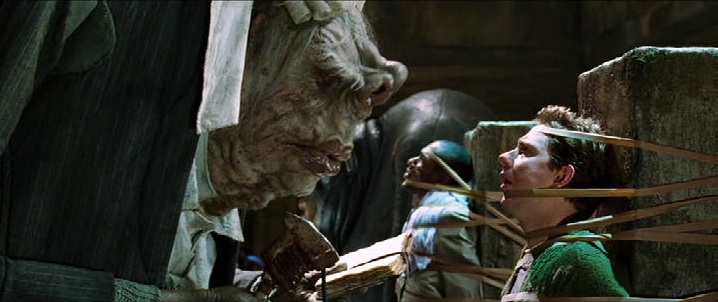Monday Movie: Thirteen Days, by David Bax
With Jackie in theaters, there’s cause to reflect on the legacy of John F. Kennedy. How much, really, did he accomplish in his brief stay in the White House? If there’s one thing on the résumé that anyone can point to, it’s the Cuban Missile Crisis, in which the United States and the Soviet Union shoved one another right up to the cliff’s edge of nuclear war and then Kennedy’s administration carefully and incrementally eased us back from it while the world sweated. Thirteen Days, made in 2000, dramatizes (and lightly fictionalizes) those proceedings. It’s not perfect but, in a way, it may be the ultimate Cold War movie. Battles herein are fought not between armies but in offices and over phone lines, by men in shirtsleeves and horn-rimmed glasses. But that doesn’t make it any less tense or thrilling.
Surprisingly, for a movie about John F. Kennedy’s shining moment, the President himself is not the main character of the story. Instead, that role is filled by Kenny O’Donnell (Kevin Costner) a special assistant to President Kennedy (played by Bruce Greenwood). This is in keeping with the overall approach taken by journeyman director Roger Donaldson (reuniting with Costner thirteen years after the terrific No Way Out), who wisely avoids grandeur in his presentation, given that the subject matter—the threat of nuclear annihilation—is a big enough idea to grapple with on its own. This is a movie of beige bureaucracy, of flatly lit hallways and low ceilings. It’s a workaday approach to saving the world and it’s only fitting that our hero, though a civil servant, is first and foremost a salary man.
As mentioned, the screenplay takes some liberties—most notably with the inflation of O’Donnell’s role to begin with, if the real life Robert McNamara (portrayed here by Dylan Baker) is to be believed. Nevertheless, it succeeds in authenticating an important moment of twentieth century American history. Thirteen Days shows us that the Cuban Missile Crisis was more than just a near-miss. It was a hard won victory in a major war.






























